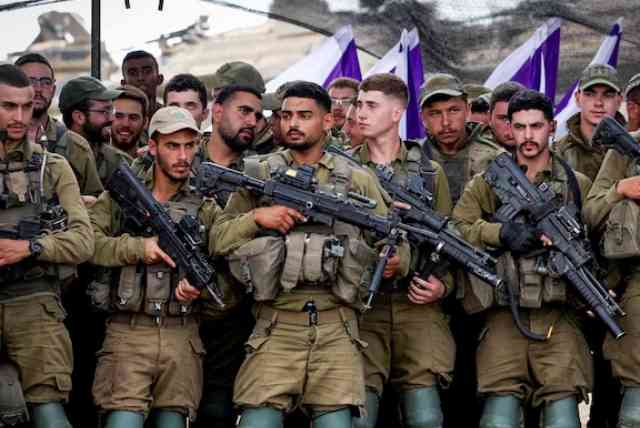Can India & Pakistan Settle Kashmir Through Talks?
Having failed to generate world attention on the Kashmir’s status, Pakistan may rely back on terror attacks. But such acts will now carry a high risk of Indian retaliation as happened in Balakot
I wrote this elsewhere on August 5, the day India ended special status of Jammu, Kashmir and Ladakh, and find that perception reinforced a month hence. The credit/blame for ratcheting up the Kashmir issue for South Asia and the world should go to United States President Donald Trump.
Things were not hunky-dory in the troubled state, now sliced into two union territories. But Trump set the timetable for Prime Minister Narendra Modi to implement his party’s long-held political agenda.
Modi felt cornered when Trump offered to mediate/adjudicate on Kashmir issue between India and Pakistan, claiming that Modi had asked for it, He said this before visiting Pakistan Prime Minister Imran Khan on July 22 in Washington.
Asking Trump to mediate goes against Modi’s grain. This is also not the position of his government and the party. Even in the past, India has always thwarted, except when expedient, any outside move to discuss Kashmir.
Trump possibly misread Modi’s mind. His announcement in Khan’s presence infuriated the Indians. Anxious to get Pakistan’s fullest cooperation in quitting Afghanistan, Trump may have thought he was giving Khan and his military mentors an additional reason to play the ball. This has boomeranged with consequences for Kashmir.
Look at the compulsions of all three players, Trump needs Khan to evacuate. Khan wants to make the best of this in money and military terms and firm up Pakistan’s position as the principal guarantor of everything happening to Afghanistan. Trump’s linking Kashmir was a bonus.
But having furthered Indo-US relations to where they are Modi has no real compulsion or incentive to seek Trump’s good offices on the Kashmir issue.
Now, having worked within its own territory, India doesn’t need any mediation.
India’s problem lies elsewhere. Special constitutional provisions, Articles 370 and 35A that have been abrogated were diluted, anyway, over the years and were largely symbolic. Annulling them has caused a huge set of issues – political, social, economic and psychological – for an entire state of 12.5 million people (2011 census figures) used to a way of life for seven decades.
Their lockdown is complete with communications snapped, movement restricted and despite official claims, a complete disruption of lives. Their future uncertain, mood is one of anger and disenchantment.
Like its geographical location, a Muslim majority state topped India’s image of a secular democracy. This erstwhile princely state’s accession was under unique circumstances and the provisions were definitely ‘temporary’. But undoing them has sent negative signals far and wide. History students ask if this belatedly justifies Hindus and Muslims being two separate ‘nations’, which led to the Partition.
Despite virtual separation of a Hindu-majority Jammu and a Buddhist-majority Ladakh, the challenge persists from a Muslim populace that forms a majority in the Kashmir Valley, with sections of it espousing separatism, some even preferring Pakistan.
Trying to solve this over a long period is Modi’s most formidable challenge. There is no denying it is a long haul and as of now, the conditions are grim.
Modi needs to reach out to the people, particularly in the Valley, sooner than later. All political players have been clubbed together. Indications are that curbs could ease on mainstream political parties with release of their chiefs from house-detention. But the government would be tough for separatists and worse for those looking for political and/or armed support from across the border.
Frankly speaking, there are no principles – it’s realpolitik at work.
If street protests ensue and India puts them down with a heavy hand – both are stark possibilities — one can expect denunciation of human rights violations. But in today’s world, human rights violations taking place daily in different parts of the world have, regrettably, lost their salience as instigators of international pressure.
As for Pakistan, raising the nuclear specter as it is wont to, Khan has warned of a third world war. Putting school children in front, he has unleashed a weekly national campaign where he attacks Modi, his faith and government as ‘fascist’, ‘Hindu supremacist’ etc. He seems unmindful of the risk he is putting the religious minorities in his own country, already discriminated socially and economically and frequently targeted by Islamist militants.
Khan tells the world community to intervene – or else. But things have changed since 9/11. With emergence of aggressive ‘nationalist’ leaders across the world, everyone has things to hide and people to get tough with.
Pakistan is unhappy that the world doesn’t listen to its angry laments. Except Turkey and its all-weather friend China that has its own compulsions with India, everyone wants the issue to be resolved bilaterally.
The Pakistan Senate passed a strong resolution. But it loudly wailed that the world is indifferent to the “Kashmir cause”. A restive opposition demands Khan to do more. Support came in the form of a resolution by the Organisation of Islamic Cooperation (OIC) asking India to roll back its action and follow the UN resolutions. But “the bubble of an Islamic ummah has burst,” said former Senate Chief Raza Rabbani. Dawn newspaper editorially noted that the OIC had been “a mere spectator.”
That Saudi Arabia’s Aramco signed a deal with India’s Reliance and the UAE conferred its highest civilian award on Modi last month, says Pakistan, demonstrates that economic gains with and from India have influenced prominent Muslim nations.
The Kashmir glue binds Pakistan. From Tehreek-e-Labaik to the liberal human rights bodies alike, all are united, although the latter have eschewed jingoism. Khan’s position is unenviable. Caught napping, the military has taken control of the discourse. Any criticism comes only from analysts safely ensconced in the West.
Since Kashmir issue was born with the Partition and has been linked to its very raison d’etre, Pakistan is unlikely to give up.
In India, criticism, if not outright opposition to Modi’s action, is strong, reflecting diversity. Pakistan and Kashmir do not rouse sentiments down south. It’s a relatively strong democracy, but the opposition is divided and on back-foot. Modi has made it a Kashmir-versus-the rest issue. Politically, this reinforces his party’s predominant position.
Serious differences are voiced on legal and constitutional aspects. India’s Supreme Court has shown no inclination to do anything immediate and/or drastic, giving the government time to restore normalcy, while constituting a 5-judge bench to hear the petitions.
Pakistan’s stakes are high, but it is working from a position of disadvantage. One, it cannot alter the new reality through pulic protests and diplomatic campaign. Two, India is, or ought to be, well prepared to meet the local situation, ruthlessly as and when required, and can take care of cross border moves.
It leaves scope for only terror attacks. But the surprise element of such attack(s) also carries high a risk of Indian retaliation as had happened at Balakot after Pulwama.
Talks on laying a corridor across Punjab border to Sikh shrine at Kartarpur and consular access to alleged Indian spy Kulbhushan Jadhav in Pakistani prison are two discernible signs of attempts at restoring a semblance of calm.
Given this situation, any substantive talks are far away. Everyone says: no war. Both sides are claiming the full territory. There is scope only for a negotiated settlement. Can that be based on on-ground realities? Will the neighbours agree to keep what they control? For now, this possibility is into an uncertain future.
The writer can be reached at mahendraved07@gmail.com



